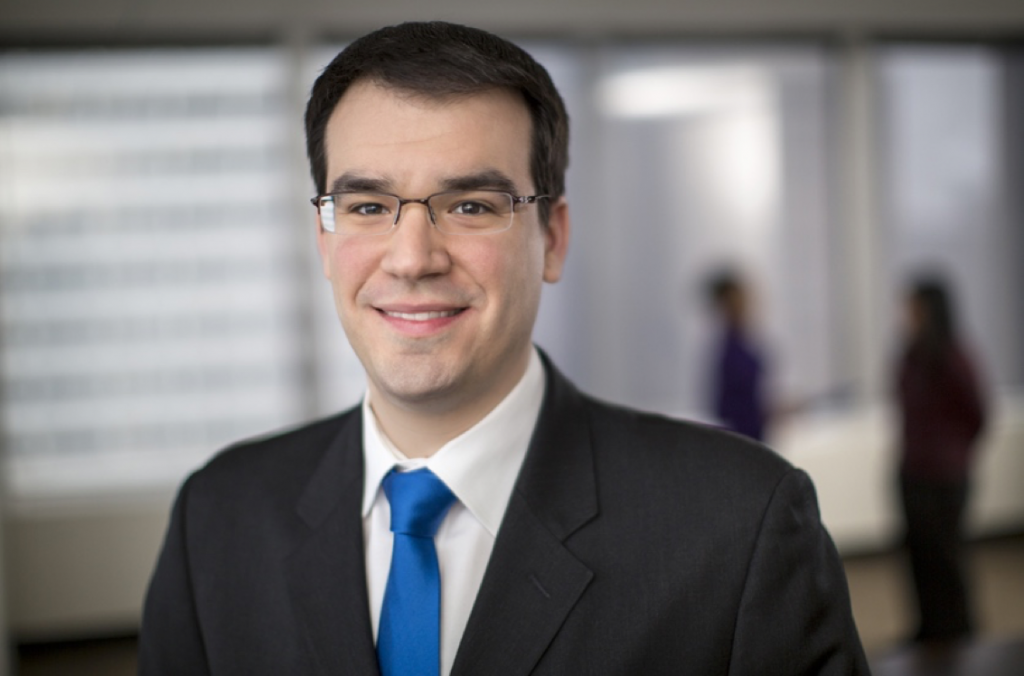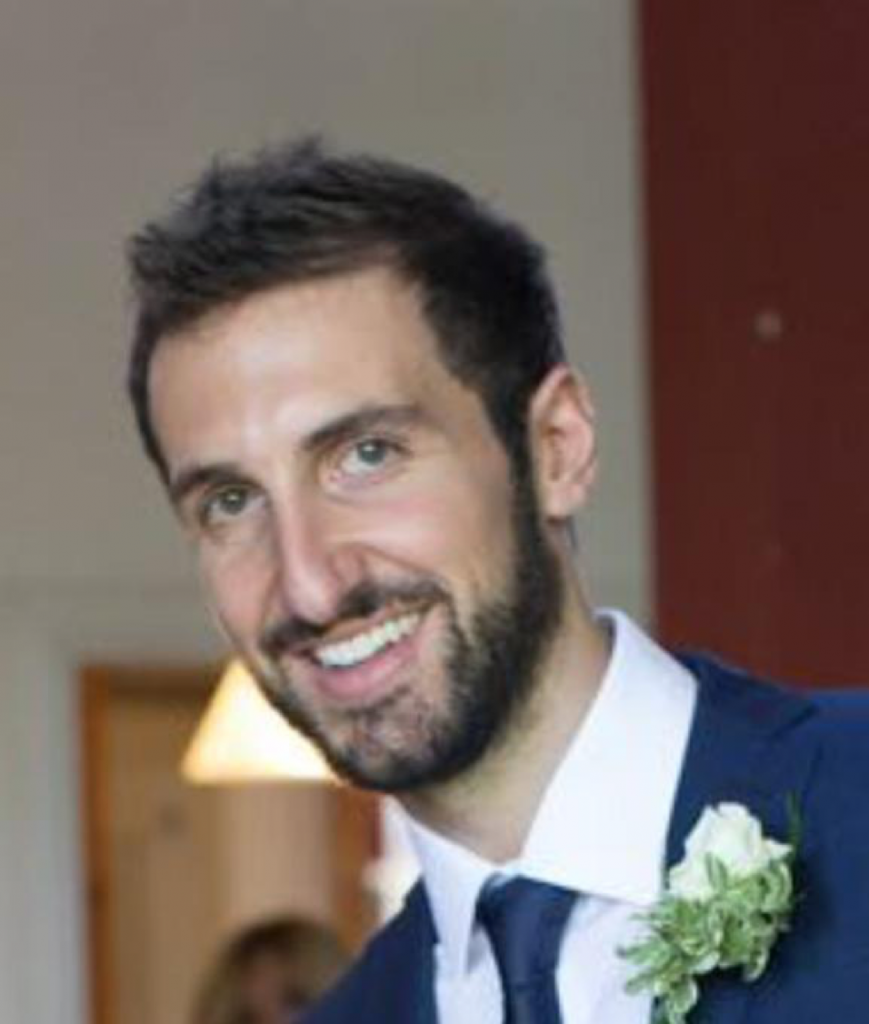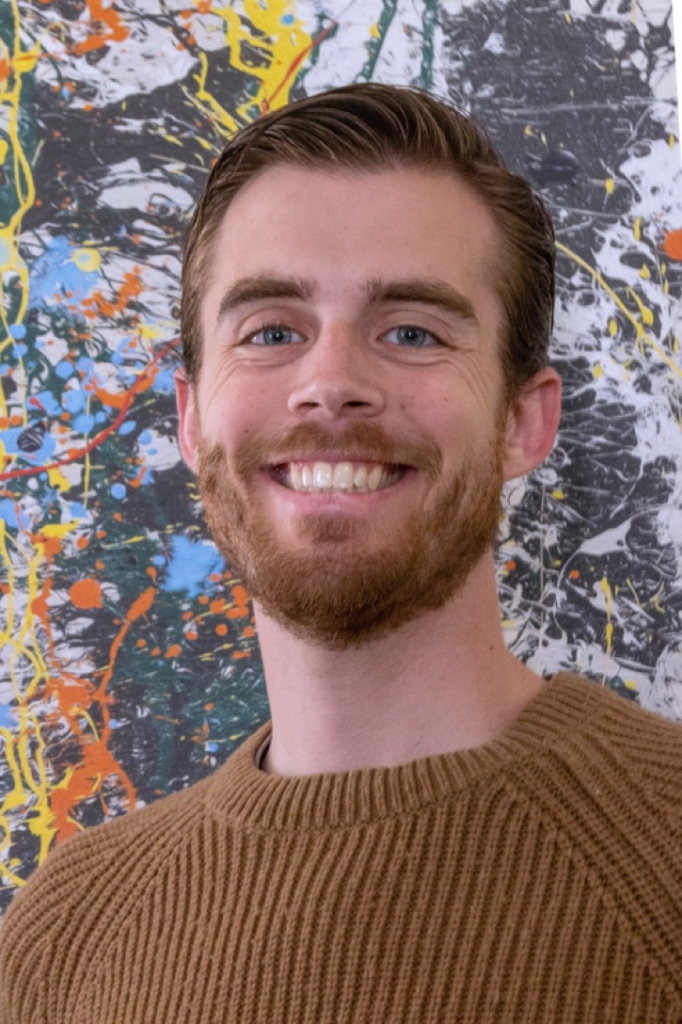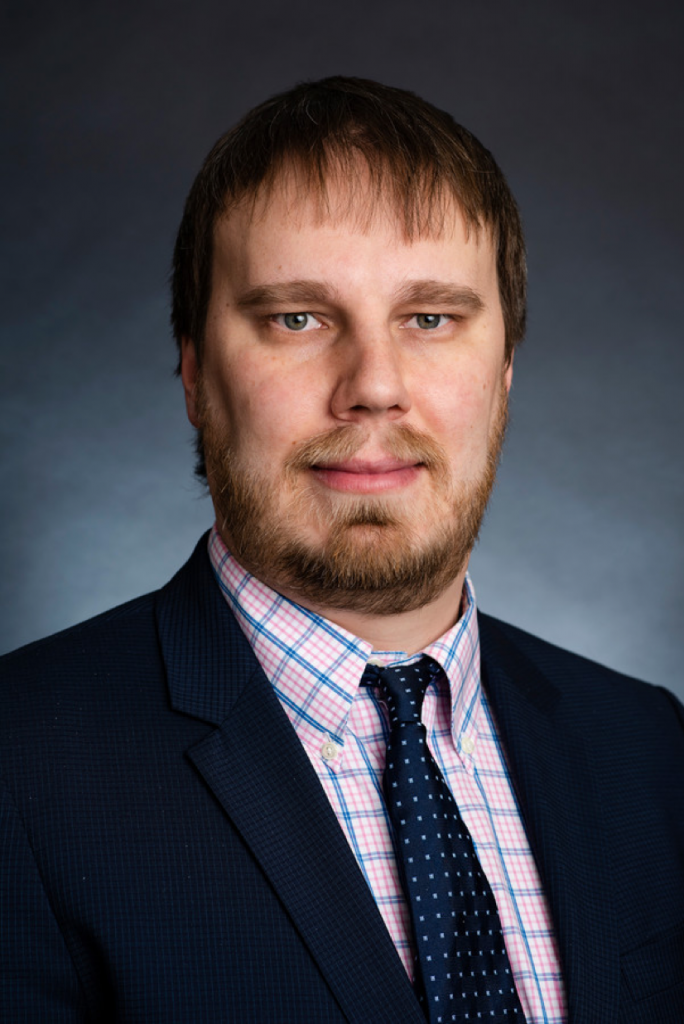Program Manager: Jinghan Zhu, Northwestern University
Symposium N1 – Workshops
Workshop 1: “Patents and Patent Applications: What Every Scientist and Engineer Should Know”
Saturday, October 12, 2019 4-5pm, Northwestern University, Tech LR2
Abstract: An introduction to patent protection will be covered, including what is a patent, why patent, what can (and cannot) be patented, and the process for applying and obtaining a patent from the U.S. Patent & Trademark Office.
Invited speaker: James L. Lovsin, Partner, McDonnell Boehnen Hulbert & Berghoff LLP

Bio: James Lovsin is a partner with McDonnell Boehnen Hulbert & Berghoff LLP in Chicago. Mr. Lovsin concentrates his practice on intellectual property matters, in- cluding patent litigation and appeals, and patent and trademark procurement and counseling. He has experience in all phases of litigation and has litigated patents, trademarks, trade dress, copyrights, and trade secrets. He also has substantial experience preparing and prosecuting patent applications. Mr. Lovsin received a B.S. in Mechanical Engineering from Northwestern University in 2005, and he received a J.D. from University of Illinois College of Law in 2010.
Workshop 2: “Making Sense of How Media Cover Science”
Saturday, October 12, 2019 5-6pm, Northwestern University, , Tech LR2
Abstract: Conveying scientific knowledge in a concise and effective manner is of vital im- portance for scientists and engineers who want to make a bigger impact beyond their own research fields or who are planning to transfer from academia to industry. Science communication skills are becoming part of core professional development skills and will be covered in this workshop.
Invited Speaker: Prof. Patti Wolter, Medill School of Journalism, Media, Integrated Marketing Communications, Northwestern University

Bio: Patti Wolter joined the Medill faculty in the spring of 2002 and was named the Helen Gurley Brown Magazine Professor in 2018. Prior to joining the faculty, she spent 12 years in senior staff magazine jobs in New York, San Francisco and Chicago. She served as man- aging editor as well as acting editor at Mother Jones magazine and oversaw the award- winning health investigations team at Self magazine. Her freelance writing on women’s health and nutrition has appeared in a range of publications, and she continues to work as an editorial consultant for various print and online outlets.
Wolter’s teaching focuses on the magazine industry, factchecking, science writing and narrative, especially in relationship to feature writing and multimedia storytelling. She teaches courses in magazine editing, feature writing, health and science reporting, and narrative structure for undergraduate and graduate students. In addition to her regular teaching, Wolter has designed and implemented fact-checking curricula across Medill classes and programs and regularly guest lectures on the topic. For Northwestern’s Graduate School, Wolter is part of the team that developed a writing-for-consumer-audiences class for STEM+ Ph.D. students and is the lead lecturer for the course, now in its fifth year. Wolter also gives lectures and runs workshops for scientists on how to communicate with media and to develop skills for sharing their findings to lay audiences. She is a regular judge for the National Magazine Awards and is a member of the Knight Foundation’s Science Journalism Project. She also leads Medill’s prestigious John Bartlow Martin Award for Public Interest Magazine Journalism annual contest. She has received numerous teaching awards from Northwestern’s Associated Student Government and was Medill’s Undergraduate Professor of the Year in 2017.
Symposium N2 – Seminars and Discussions
Seminar 1 : “Applying for Engineering Graduate Schools”
Sunday, October 13, 2019 9-10am, Northwestern University, Tech LR4
Abstract:
Invited speaker: Bruce A. Lindvall, Assistant Dean for Graduate Studies, McCormick School of Engineering and Applied Science, Northwestern University

Bruce Lindvall is responsible for the management and growth of existing and future graduate degree programs at McCormick. He works closely with others to coordinate strategic planning, integrated brand marketing, and the student learning environment.
Bruce is also responsible for communication with prospective students and applicants, while overseeing the MS and PhD admissions processes in McCormick. He is also responsible for the student environment which includes 900 PhD and nearly 600 MS students. Bruce is the Northwestern GEM University representative and serves on the GEM Board of Directors.
Before joining Northwestern, he worked at the College Board, the University of Kansas, and Purdue University. He has a BS in Mathematics, an MS in Guidance and Counseling, and a PhD in Educational Administration, all from Purdue University.
Panel discussion 2: “How to Thrive in Graduate School”
Sunday, October 13, 2019 10-11am, Northwestern University
Abstract: This panel session targets early stage graduate students who are looking into resources to help them thrive in their PhD studies. Three successful senior graduate students will share their own experiences and sto- ries at graduate school. A broad range of topics including fellowship application, qualification exam, mentor- ship, work-life balance and scientific collaborations will be covered.
Panelists:

Jingshan Du is a Ph.D. Candidate in the Department of Materials Science and Engineering at Northwestern University, co-advised by Prof. Chad A. Mirkin and Prof. Vinayak P. Dravid. He received his B.Sc. in Engineering from Chu Kochen Honors College, Zhejiang University in 2015. Under the advisory of Prof. Deren Yang and Prof. Hui Zhang, he investigated the synthesis and structural evolution of colloidal noble metal and oxide nanostructures for catalytic purposes. Before joining Northwestern, he spent his senior year with Prof. David A. Weitz at Harvard University studying the interfacial dynamics of AgCl−Ag nanoparticle heterojunctions using in situ electron microscopy. His current research interests include complex nanoparticle systems, nanoscale thermodynamics, and nanoscale phase transformation. He was named a Ryan Fellow by the International Institute for Nanotechnology at Northwestern University, a Perkin Scholar by the Society of Chemical Industry America, and a recipient of the 2019 IPMI Sabin Metal Ron Bleggi Student Award. He currently serves as the Vice President of the SPIE Northwestern University Chapter.

Chenfei Hu is currently a Ph.D. candidate at University of Illinois at Urbana-Champaign. He got his Bachelor’s degree in Optoelectronics at Tianjin University, China in 2014, and Master’s degree in ECE at Duke University (Durham, NC). His research is focused on optical engineering, microscopy, and biophotonics. So far, he has authored 8 research articles and more than 15 conference presentations.

Simone Bianconi is a 4th year PhD candidate in the Electrical and Computer Engineering department, president of the Northwestern SPIE student chapter and Ryan Fellow since 2018, at Northwestern he organized and took part in several career development and outreach events.
Panel discussion 3: “Working in Optics and Engineering Industries”
Sunday, October 13, 2019 11am-12pm, Northwestern University, LR4
Abstract: Many scientists and researchers in the academia world are not familiar with the industrial settings and business world. However, it is important to learn about the running modes in industry if they are planning to look for industrial jobs, seeking for project collaborators and sponsors, or looking into entrepreneurship. This panel session is to help students and postdocs who are interested in joining optics and materials engineering companies. Three optics/materials engineers will introduce their companies/industries, share their own job search experiences and career paths, and answer questions from the audience.
Panelists:

Spencer Wells is a research scientist at Facebook Reality Labs where he works on developing materials to enable new optical and display systems and components for virtual and augmented reality. He received a B.S. in Materials Science and Engineering from the University of Illinois at Urbana Champaign with highest honors in 2013. Subsequently he received a Ph.D. in Materials Science and Engineering from Northwestern University in 2018 for research on “Processing and Devices for chemically Reactive Two-Dimensional Materials” under the supervision of Professor Mark Hersam. He has previously received awards including the National Defense Science and Engineering Graduate Fellowship and the Northwestern University Ryan Fellowship. He is the (co)author of 17 published papers, has over 2200 citations, an h-index of 11, and over 20 patent applications pending. Outside of work he enjoys reading, cycling, and running.

Dr. Zhiyuan Sun, obtained his B.S. from the Materials Science Department at University of Science and Technology of China (USTC) where worked in Prof. Qianwang Chen’s group from 2011 at the Hefei National Lab for Physical Sciences at the Microscale. After his graduation from USTC, Dr. Sun started pursuing his Ph.D. at Northwestern University under the supervision of Prof. Lincoln Lauhon and Prof. David Seidman, with research focuses on atom-probe tomography and semiconductor nanowire. Zhiyuan has published papers as first-author and co-author in Nano Letters, ACS nano, Energy and Environmental Science et. al. He also served as reviewer for more than 20 journals, including ACS nano, ACS applied Science & Interfaces, and Nano-Miro Letters, and has peer-reviewed more than 100 manuscripts. Currently, Zhiyuan worked at Apple Inc. as a Hardware Engineer, working on emerging interactive module for future consumer electronics.

Dr. Andrey Ivankin is a Co-founder and the Chief Technology Officer at TERA-print, a nanotechnology startup spun out of Professor Chad Mirkin’s lab at Northwestern University. He heads the engineering and technology development program at TERA-print, and was behind the design of the Company’s two highly innovative desktop nanoprinters, which are already being used by >20 research groups worldwide for applications in materials science, biology, chemistry, and physics. Prior to TERA-print, Dr. Ivankin worked on advancing micro- and nanofabrication techniques at Northwestern University and single-molecule detection strategies at Northeastern University. Dr. Ivankin holds Ph.D. in Chemical Engineering from the Illinois Institute of Technology.